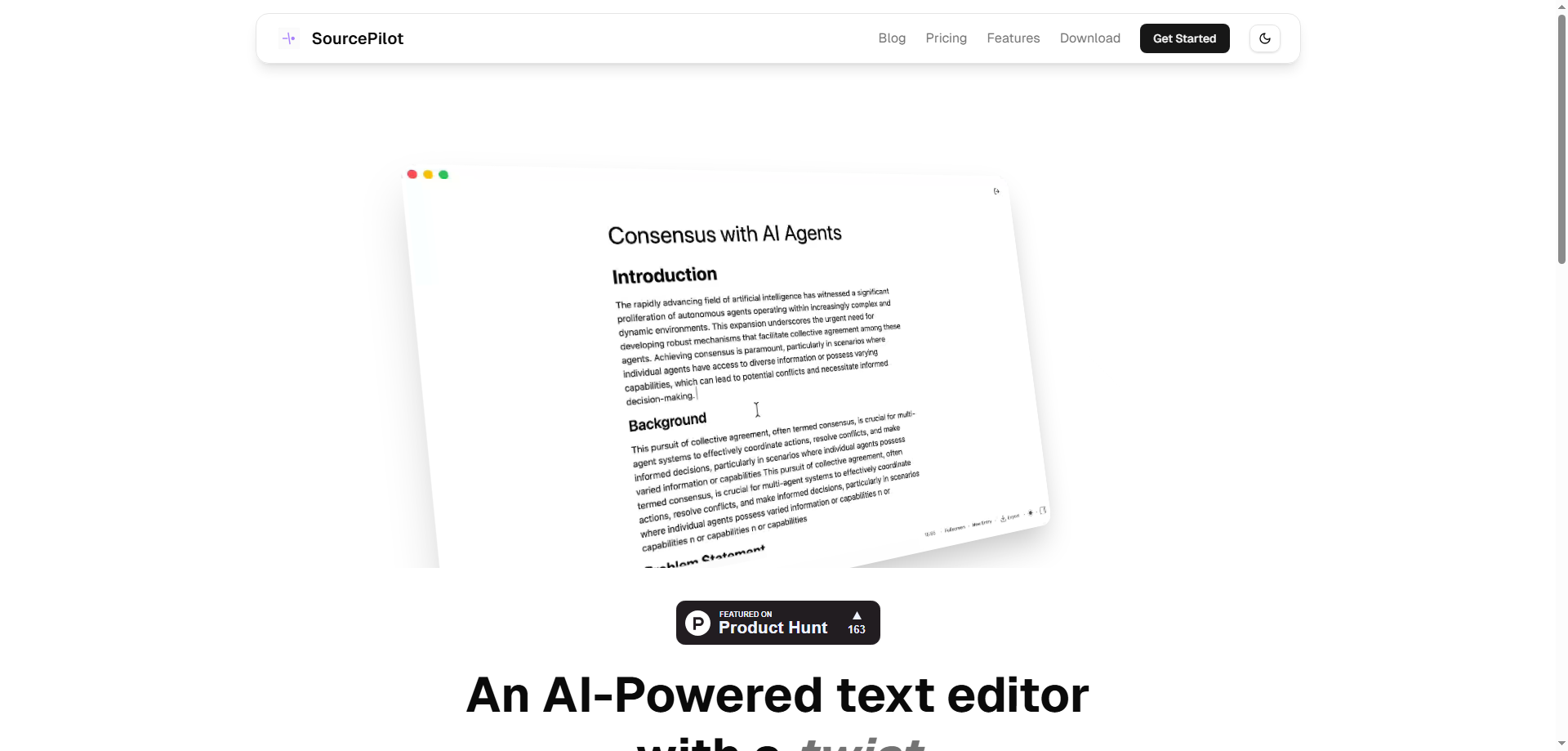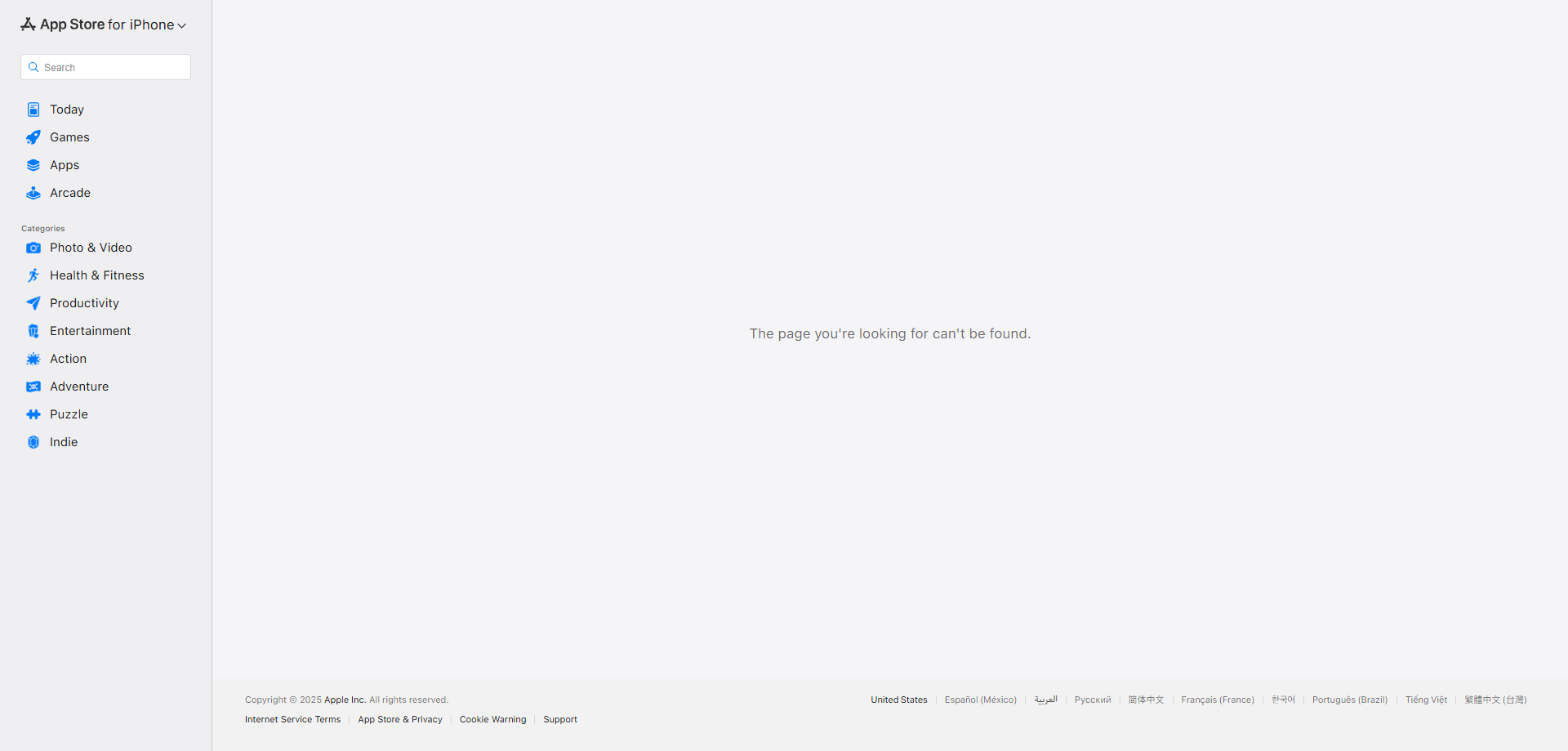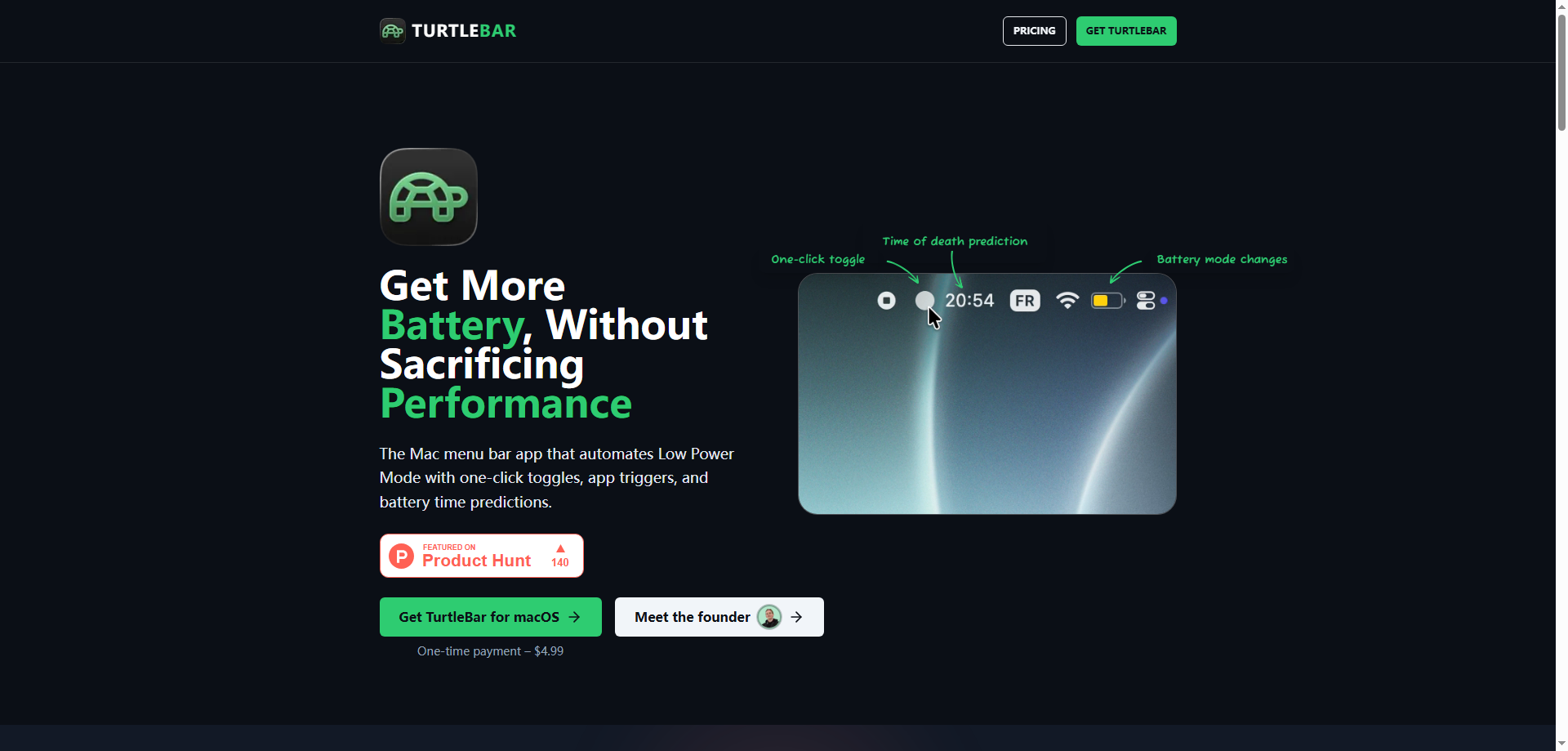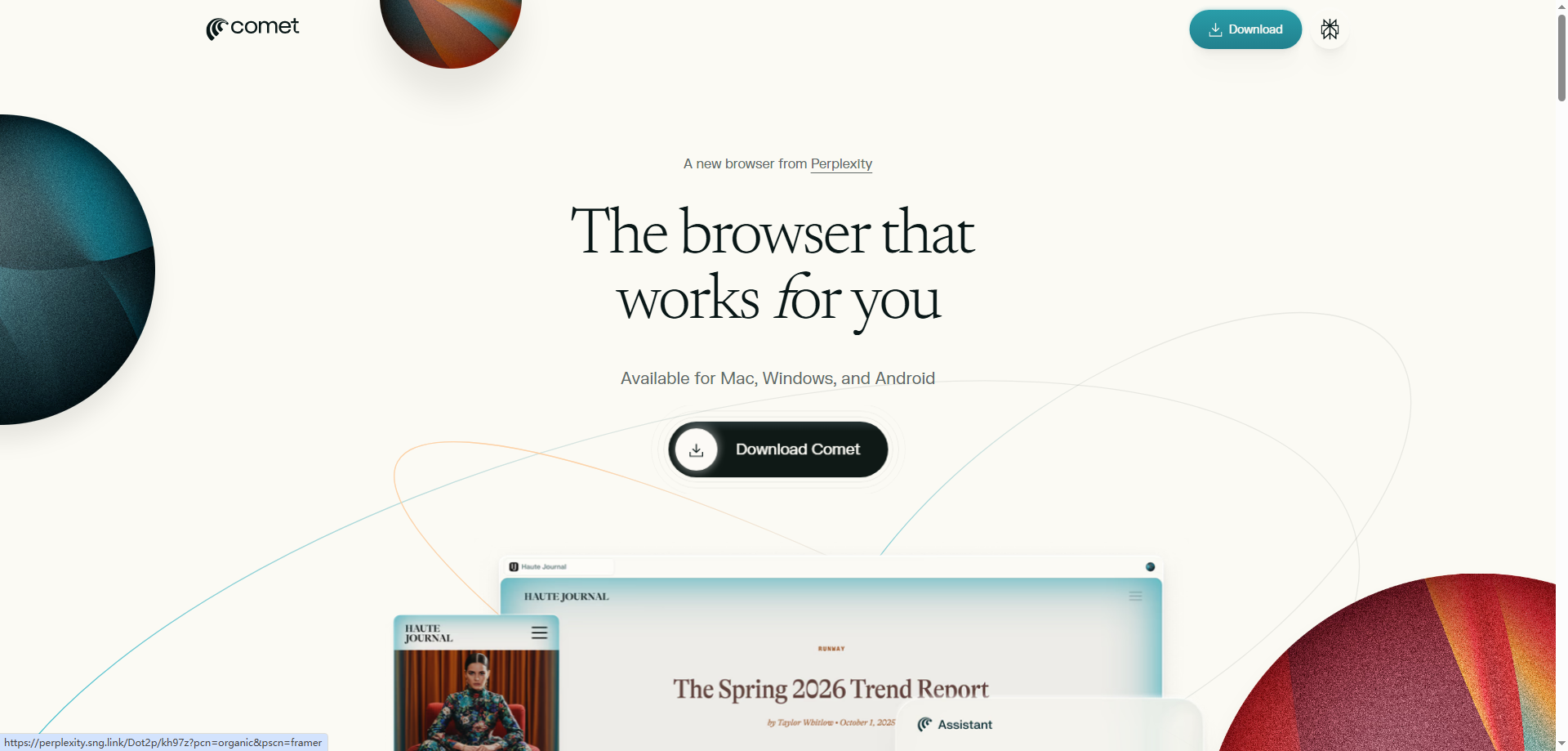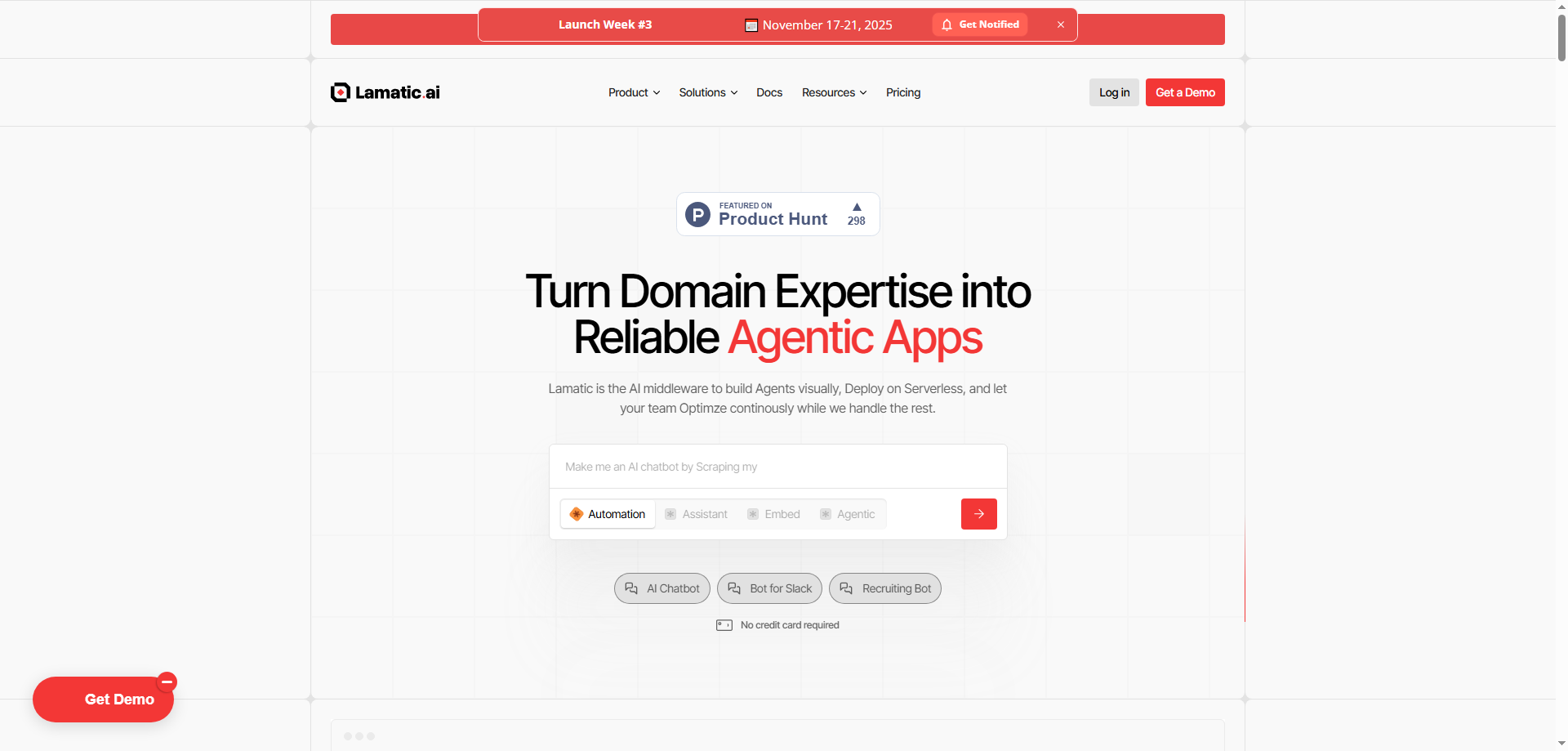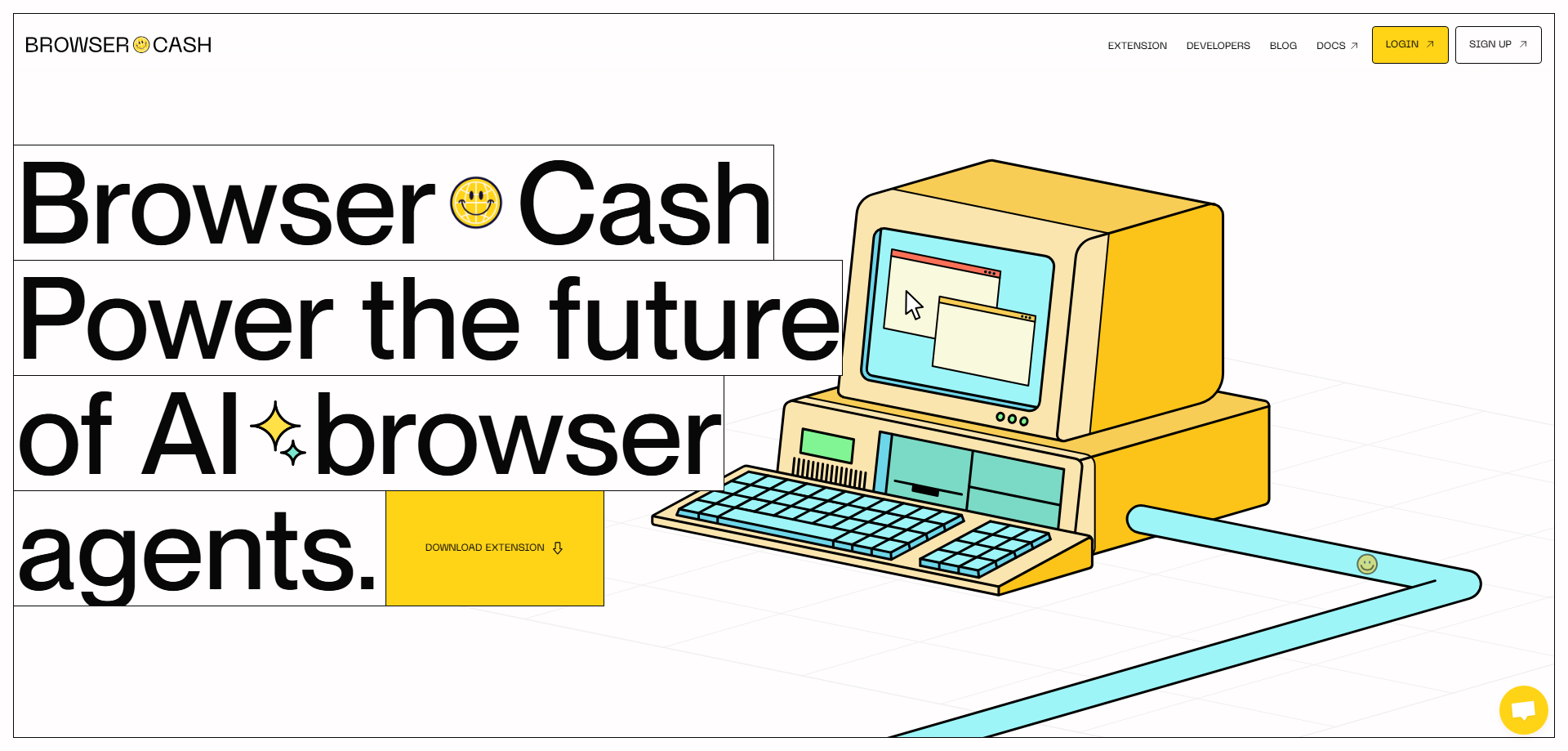So I Heard About This Writing Tool Called SourcePilot
Let me be upfront with you: I'm drowning in writing tools. Grammarly, ChatGPT, Hemingway Editor, Google Docs with AI features – I've tried them all. So when I heard about SourcePilot, which calls itself a "personal writing editor" that helps you write better, faster, and smarter, I was skeptical. Like, what could SourcePilot possibly offer that I don't already have?
But I dug into it anyway, because that's what I do. And I've got some thoughts to share about SourcePilot and whether it's actually worth your attention.
1. The Creative Angle: What's Actually Innovative About SourcePilot?
Let's talk about whether SourcePilot brings anything creatively new to the table, because honestly, the writing tool space is incredibly crowded.
The "Dedicated Personal Editor" Concept
Here's what SourcePilot is trying to do creatively: position itself as your dedicated, distraction-free writing space with AI assistance built in. The tagline talks about "owning your writing tool" with a "dedicated personal editor."
Now, I'll be honest – this isn't revolutionary. Google Docs exists. Notion exists. Scrivener exists. But what SourcePilot seems to be going for is a middle ground: simpler than professional writing software, more focused than Google Docs, more integrated than using ChatGPT separately.
The creative positioning is essentially: "What if you had one place to write where the AI assistance was seamlessly integrated, but you weren't distracted by all the other features of productivity suites or overwhelmed by the complexity of professional writing software?"
That's... fine. It's not groundbreaking, but it's a reasonable creative approach.
Real-Time Writing Assistance as Core Feature
From what I can gather, SourcePilot provides real-time suggestions while you write – helping with word choice, sentence flow, grammar, and spelling. This is where SourcePilot is creatively similar to Grammarly but trying to differentiate by being a complete writing environment rather than just an overlay.
The creative idea here is integration: instead of writing in one place and getting suggestions from a separate tool, SourcePilot combines both. You write, you get suggestions, you improve – all in one interface.
Is this creative? Kind of. It's more "creative packaging" than "creative innovation." SourcePilot is bundling existing AI writing assistance concepts into a dedicated editor. That's smart positioning, but it's not reinventing the wheel.
The "Cursor for Writing" Metaphor
The tagline mentions SourcePilot being a "cursor" for confident and precise writing. I think they're trying to evoke Cursor, the popular AI-powered code editor. If that's the intention, it's actually a clever creative move – positioning SourcePilot as "Cursor, but for writers instead of developers."
Cursor has been hugely successful by deeply integrating AI into the coding workflow. If SourcePilot can do the same for writing – making AI assistance feel natural and seamless rather than bolted-on – that could be genuinely valuable.
But here's the thing: I haven't seen evidence that SourcePilot has achieved this level of integration yet. The description is vague about specific features. Without seeing the actual product, I can't tell if SourcePilot is actually as revolutionary as Cursor was for coding, or if it's just using Cursor's success as marketing inspiration.
Freemium Model: Not Creative, But Smart
SourcePilot offers a free tier with paid upgrades for advanced features. This isn't creative – it's standard SaaS business model. But it's smart. It lowers the barrier to trying SourcePilot while creating a path to monetization.
From a creative standpoint, SourcePilot isn't pushing boundaries. It's taking established concepts (AI writing assistance, dedicated editors, freemium pricing) and packaging them together. That can still be valuable, but it's evolutionary rather than revolutionary.
2. The Disruption Question: Can SourcePilot Actually Replace What I'm Using?
Now let's get into whether SourcePilot can actually disrupt the writing tool market and replace existing solutions.
What SourcePilot is Competing Against
SourcePilot is facing a brutally competitive landscape:
- Grammarly (grammar and style checking)
- ChatGPT/Claude (AI writing assistance)
- Google Docs (cloud writing with basic AI)
- Notion (all-in-one workspace with AI)
- Hemingway Editor (style improvement)
- ProWritingAid (comprehensive writing analysis)
- Microsoft Word with Copilot (traditional word processor with AI)
Can SourcePilot replace any of these? Let's be realistic.
What SourcePilot Might Replace (For Some Users)
Simple writing + AI assistance workflows: If you currently write in Google Docs and copy-paste into ChatGPT for improvements, SourcePilot could replace that workflow by integrating both functions.
I do this constantly – write something in Docs, realize it's not great, copy to ChatGPT, ask for improvements, copy back. If SourcePilot can make that seamless within one editor, that's genuinely useful.
Basic Grammarly use cases: For users who use Grammarly primarily for grammar/spelling checks and basic suggestions, SourcePilot might be a viable alternative if the AI assistance is good enough.
However – and this is important – Grammarly is really, really good. They've had years to refine their algorithms. SourcePilot would need to match or exceed Grammarly's quality to be a true replacement, and that's a high bar.
Hemingway Editor for style: If SourcePilot can provide style suggestions (sentence complexity, passive voice, readability), it might replace Hemingway Editor for some users.
What SourcePilot Probably Won't Replace
Let me be blunt about SourcePilot's limitations:
Professional writing software: Scrivener, Ulysses, Final Draft – these tools have deep features for long-form writing, project organization, and specialized writing (screenplays, novels, etc.). SourcePilot isn't competing here.
Full productivity suites: Notion and similar tools offer databases, project management, wikis, and more beyond just writing. SourcePilot is focused on writing, so it's not replacing comprehensive workspaces.
Specialized tools: Academic writing tools with citation management, technical writing tools with version control, collaborative editing platforms with real-time co-authoring – SourcePilot isn't built for these use cases.
ChatGPT for complex tasks: When I need ChatGPT to restructure an entire article, write in a specific style, or handle complex instructions, I still need the full ChatGPT interface. A writing editor with AI assistance can't fully replace conversational AI for complex tasks.
My Honest Disruption Assessment
Here's my take: SourcePilot isn't going to massively disrupt the writing tool market. The market is too established, the competition is too strong, and I haven't seen evidence of breakthrough features that would make people abandon their current tools.
However, SourcePilot could carve out a niche: users who want simple, focused writing with good AI assistance and don't need the complexity of professional software or the breadth of productivity suites.
That's a viable niche, but it's not disruption. It's market segmentation.
For me personally, I don't see SourcePilot replacing my current workflow unless it's dramatically better than what I'm using. And based on the available information, I'm skeptical it's that much better.
3. Do People Actually Need SourcePilot? The User Acceptance Reality
Now let's talk about whether SourcePilot solves real user needs or is just another writing tool in an overcrowded market.
The Pain Points SourcePilot Claims to Solve
According to the description, SourcePilot helps you:
- Write better (improved quality)
- Write faster (increased speed)
- Write smarter (enhanced intelligence)
These are universal writing pain points. Everyone wants to write better, faster, and smarter. So the need is real. The question is: does SourcePilot solve these problems better than existing tools?
Different User Segments, Different Needs
Freelance writers: The use case mentions a freelance writer using SourcePilot for marketing copy. Does this segment need SourcePilot?
Maybe. Freelance writers need tools that help them deliver quality work quickly. If SourcePilot genuinely speeds up the writing process with good AI suggestions, it could be valuable.
But here's the reality: most freelance writers I know already have established workflows with tools they trust. Convincing them to switch to SourcePilot requires demonstrating clear, significant advantages. I'm not sure SourcePilot has done that yet.
Students: The academic writing use case makes sense. Students need grammar checking, style suggestions, and academic tone guidance.
But students already use Grammarly (often the free version), ChatGPT, and university writing centers. Would they pay for SourcePilot? Only if it offers better value than these free or already-paid-for alternatives.
Business professionals: The use case about polishing business emails is valid. Professionals want to communicate clearly and professionally.
However, most professionals already have Microsoft Word with Copilot, Google Docs with AI features, or Grammarly integrated into their email. SourcePilot needs to be substantially better or more convenient to justify adoption.
Bloggers and content creators: The social media post example targets this segment. Content creators need tools that help them produce engaging content consistently.
This might be SourcePilot's strongest use case. Content creators are always looking for tools that improve productivity and quality. If SourcePilot can deliver here, there might be a market.
The "Tool Fatigue" Problem
Here's a major user acceptance challenge for SourcePilot: tool fatigue. People are tired of trying new productivity and writing tools. We've all signed up for dozens of "revolutionary" writing assistants that turned out to be mediocre or abandoned by developers.
SourcePilot needs to overcome this fatigue by being either:
- Significantly better than existing tools
- Free and good enough to justify trying
- Solving a specific pain point that nothing else solves
I'm not sure SourcePilot has proven any of these yet.
The Privacy and Ownership Question
SourcePilot emphasizes "owning your writing tool." This could resonate with users concerned about privacy and data ownership with cloud-based AI tools.
If SourcePilot offers local processing, better privacy controls, or guarantees about data ownership, that could be a differentiator that drives user acceptance. But the description doesn't make this clear.
My User Acceptance Prediction
Based on what I know about SourcePilot, I predict moderate-to-low user acceptance in the short term:
-
Early adopters and writing tool enthusiasts: Will definitely try SourcePilot out of curiosity. Maybe 20-30% will stick with it if it's good.
-
Average users happy with current tools: Low adoption. They're not actively looking for new writing tools.
-
Users frustrated with existing tools: Moderate adoption if SourcePilot markets effectively to this segment.
-
Budget-conscious users: If the free tier is genuinely useful, this could drive adoption. But if it's too limited, users will stick with free alternatives like Google Docs + ChatGPT.
SourcePilot needs to clearly articulate why it's better than existing solutions. Right now, the messaging is generic ("write better, faster, smarter") which doesn't differentiate it enough.
4. The Survival Question: My Rating ⭐⭐½ (2.5 out of 5 stars)
Alright, brutal honesty time. Can SourcePilot survive the next year? I'm giving it 2.5 stars, and here's why.
Why I'm Giving SourcePilot 2.5 Stars
The Limited Positive Factors:
-
Addresses real pain points: Writing assistance is a genuine need. People do want to write better and faster.
-
Freemium model reduces risk: Users can try SourcePilot without financial commitment, which lowers the barrier to adoption.
-
Market size is huge: Anyone who writes (which is basically everyone with a job) is a potential user.
Why I'm Not Giving SourcePilot Higher Ratings
The Serious Concerns:
-
Incredibly crowded market: The writing tool market is saturated. Grammarly, ProWritingAid, ChatGPT, Google, Microsoft – SourcePilot is competing against giants with massive resources and established user bases.
-
Unclear differentiation: From the available information, I can't identify what makes SourcePilot significantly better than existing tools. "Write better, faster, smarter" is generic marketing speak. What's the actual competitive advantage?
-
Vague feature descriptions: The product description doesn't detail specific features. What AI model does SourcePilot use? What specific writing improvements does it offer? How does the editor actually work? This vagueness makes me skeptical.
-
No clear moat: What prevents users from switching to competitors? What keeps users locked into SourcePilot? Without network effects, proprietary technology, or unique features, user retention could be a problem.
-
Monetization challenges: Freemium models need high conversion rates to premium tiers. With strong free alternatives (ChatGPT free tier, Grammarly free, Google Docs), convincing users to pay for SourcePilot will be tough.
-
Development and maintenance costs: Building and maintaining competitive AI writing assistance requires ongoing investment in AI models, infrastructure, and feature development. Can SourcePilot sustain this?
-
Limited information available: The fact that there's limited detailed information about SourcePilot suggests it might be early-stage or not well-developed. This increases risk.
The Risks I See
Major Risks for SourcePilot:
-
Gets completely overshadowed by big players: Google and Microsoft are integrating AI into their writing tools aggressively. SourcePilot could become irrelevant before gaining traction.
-
Can't acquire users cost-effectively: Customer acquisition in the writing tool space is expensive. Without viral growth or strong differentiation, SourcePilot might struggle to grow.
-
Product quality doesn't match competitors: If SourcePilot's AI suggestions aren't as good as Grammarly or ChatGPT, users will abandon it quickly.
-
Runs out of funding: If SourcePilot is venture-backed, it needs to show growth and path to profitability. In this competitive market, that's really hard.
-
Fails to find product-market fit: Maybe the "dedicated personal editor" concept doesn't resonate enough with users to sustain a business.
The Opportunities (If They Execute Well)
Where SourcePilot Could Potentially Win:
-
Niche specialization: If SourcePilot focuses on a specific writing niche (e.g., marketing copy, academic writing, technical documentation) and becomes the best tool for that niche, it could succeed.
-
Superior user experience: If the SourcePilot editor is significantly more pleasant and productive to use than competitors, word of mouth could drive growth.
-
Privacy-focused positioning: If SourcePilot offers better privacy and data ownership than cloud AI tools, it could appeal to privacy-conscious users.
-
Integration partnerships: Partnering with other tools or platforms to embed SourcePilot's writing assistance could expand distribution.
-
B2B pivot: Selling SourcePilot to businesses as a writing quality tool for teams might be more viable than B2C.
-
Acquisition target: If SourcePilot builds decent technology and user base, it could be acquired by a larger company. This might be the most realistic "success" outcome.
My Survival Prediction
Here's my honest assessment: I give SourcePilot a 35-40% chance of still being actively developed and growing in one year.
Most likely scenarios:
-
Struggles to gain traction (40%): SourcePilot launches, gets some initial users, but can't differentiate enough to grow significantly. Development slows as funding runs out or team loses motivation.
-
Pivots or acquires (25%): SourcePilot realizes the original positioning isn't working and either pivots to a niche focus or gets acquired by a larger company for its technology or small user base.
-
Quiet shutdown (20%): SourcePilot fails to achieve product-market fit and shuts down within 12-18 months.
-
Modest niche success (10%): SourcePilot finds a specific user segment it serves well and builds a small but sustainable business.
-
Breakthrough success (5%): SourcePilot executes brilliantly, builds significantly better features than competitors, and achieves strong growth. I'm giving this low odds because the barriers are substantial.
The 2.5-star rating reflects my skepticism about SourcePilot's ability to compete in such a crowded, competitive market without clear differentiation.
My Final Thoughts on SourcePilot
Look, I want to be fair to SourcePilot. Building any product is hard. Building a writing tool that competes with Grammarly, Google, Microsoft, and OpenAI is borderline insane.
Maybe SourcePilot has amazing features that just aren't well-described in the available information. Maybe the team has brilliant insights into user needs that I'm not seeing. Maybe they'll execute flawlessly and find a devoted user base.
But based on what I know, I'm not optimistic about SourcePilot's prospects.
The writing tool market doesn't need another generic AI writing assistant. It needs tools that solve specific problems in uniquely effective ways. I haven't seen evidence that SourcePilot does this.
Should you try SourcePilot?
If it's free to start, sure, why not? It might surprise you. But I wouldn't commit significant time or money until you've confirmed it's genuinely better than your current tools.
Would I personally use SourcePilot?
Probably not, unless it offered something significantly better than my current workflow (Google Docs + ChatGPT + occasional Grammarly). I'm skeptical it does.
My Rating: ⭐⭐½ (2.5/5 stars)
Addresses real needs but faces overwhelming competition without clear differentiation. Survival is uncertain without significant execution excellence or strategic pivots.
The harsh reality is that most writing tools fail. The market is unforgiving. SourcePilot needs to be exceptional to survive, and I haven't seen evidence of exceptionality yet.
I hope I'm wrong. I hope SourcePilot surprises everyone and builds something truly valuable. But based on the available information and market realities, I'm not betting on it.
If you're the SourcePilot team and you're reading this: prove me wrong. Show us what makes you different. Demonstrate clear value that existing tools don't provide. Build something users genuinely love and can't live without.
Until then, I remain skeptical but watchful.
